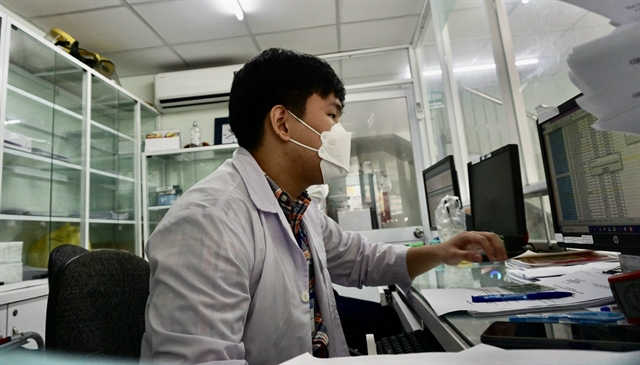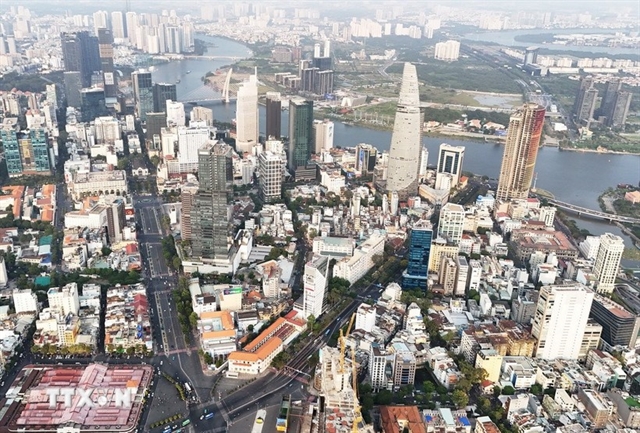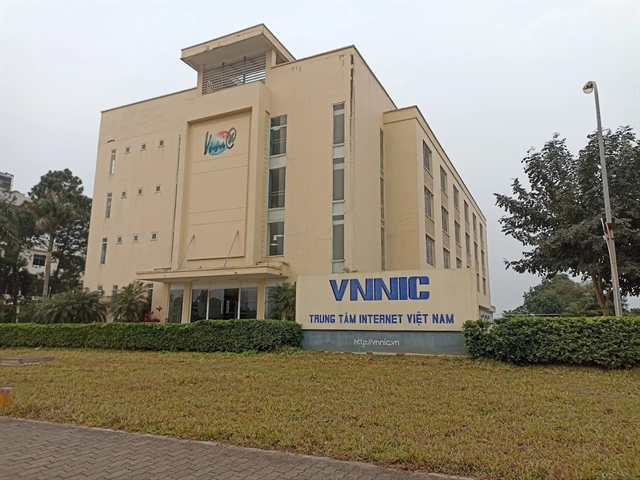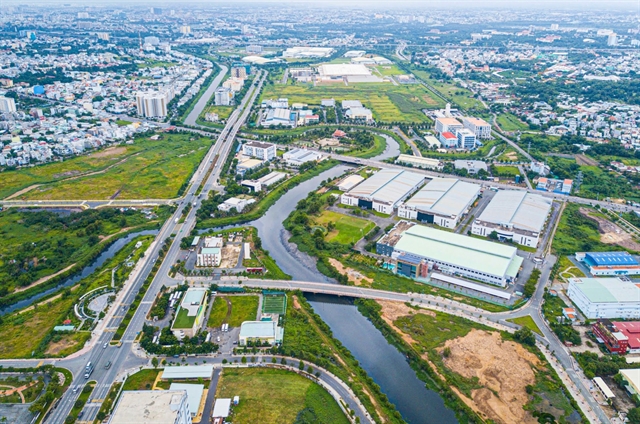 Society
Society

The expansion of the family doctor model is key to improving the capacity of primary healthcare and the management of public health issues, health experts have said.

|
| A fresh graduate from the Phạm Ngọc Thạch Medical University works at the Ward 26 Health Station in HCM City’s Bình Thạnh District. HCM City is piloting a new 18-month practice model that posts young doctors to grassroots medical centres to improve primary healthcare. — VNS Photo Thu Hằng |
HCM CITY — The expansion of the family doctor model is key to improving the capacity of primary healthcare and the management of public health issues, health experts have said.
The COVID-19 pandemic has underscored the importance of primary healthcare systems in responding to a pandemic and delivering essential medical services, Assoc Prof Nguyễn Thanh Hiệp, rector of the Phạm Ngọc Thạch University of Medicine, told the 2nd International Health Informatics Conference towards the smart family doctor network that wrapped up in HCM City on Friday.
The rate of COVID patients without symptoms or with just mild symptoms accounts for 70-80 per cent, making treatment at grassroots health facilities optimal, he said.
The increased capacity of primary healthcare systems to manage COVID patients has created public confidence in-home treatment and reduced the pressure on hospitals, he said.
Building a solid primary healthcare foundation is the most effective and equitable way to achieve universal health coverage and health security, he said.
The network of health stations operating on the principles of family medicine should be expanded from only 35 in the city now, he said.
Information technology could be used to improve the efficiency of the general practice network, he added.
Assoc Prof Lương Ngọc Khuê, general director of the Medical Services Administration, said grassroots health stations played an important role in community sampling for early detection of infection and carrying out vaccination.
Staff at ward and commune health centres and mobile medical stations offer guidance and support to patients treated at home, he said.
HCM City is piloting a new 18-month practice model that posts young doctors to grassroots health stations to improve their quality, he said.
General practitioners serving as family doctors have proven effective at improving the quality of primary healthcare at reasonable cost in many countries around the world, he said.
The model of family doctor associated with the grassroots health system has helped improve the quality of primary healthcare and management of chronic non-communicable diseases, early detection, monitoring, and treatment, he said.
But some localities have not been implementing the family doctor model, he said.
There is no mechanism or policy to attract family doctors for long-term work at grassroots healthcare facilities, he said.
There is no co-ordination between them and hospitals for the development of the model either, he added.
Dương Anh Đức, deputy chairman of the city People’s Committee, said the task of pandemic prevention and control taught us many lessons and it is important to acknowledge the extremely essential role of primary healthcare networks.
“We need to make long-term and sustainable investments to strengthen the role of primary healthcare," Đức said.
“The development of primary care with a focus on family medicine and family physician plays a key role in improving primary healthcare.
“This gives the public an opportunity to get access to quality healthcare services and helps us better manage public health issues.”
The two-day conference was organised by the Phạm Ngọc Thạch University of Medicine and the Việt Nam Health Economics Association. — VNS




